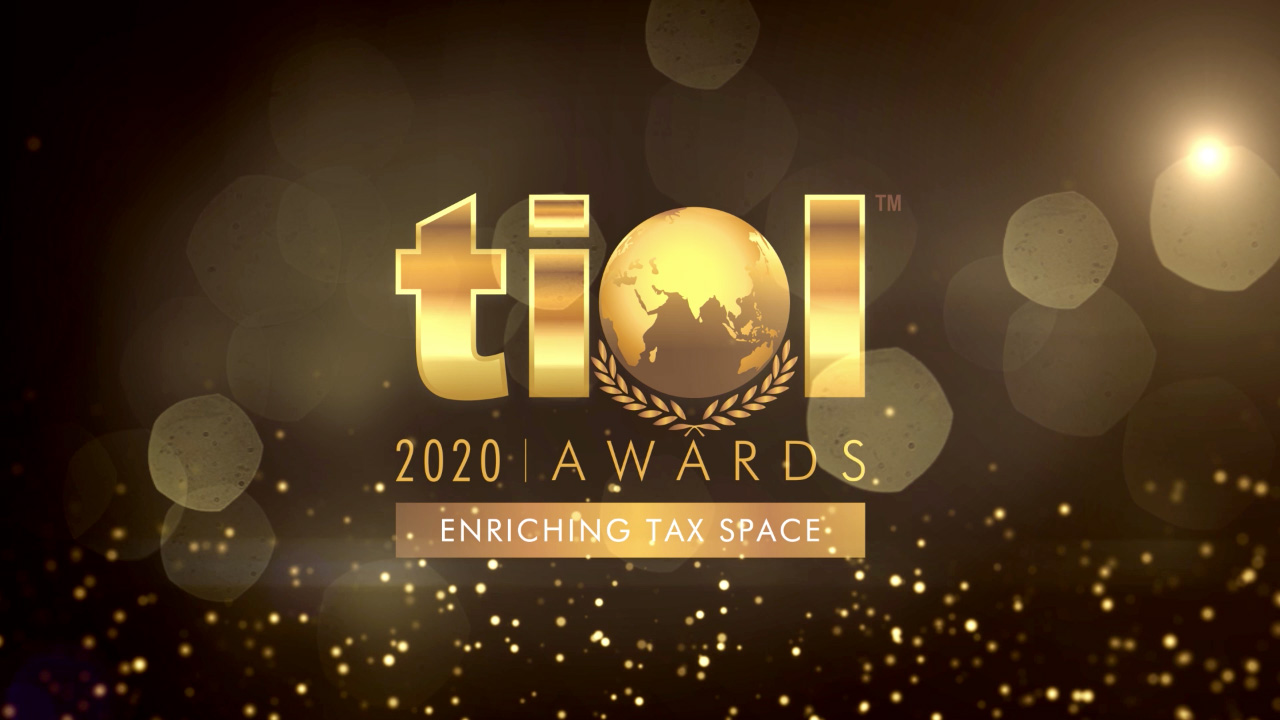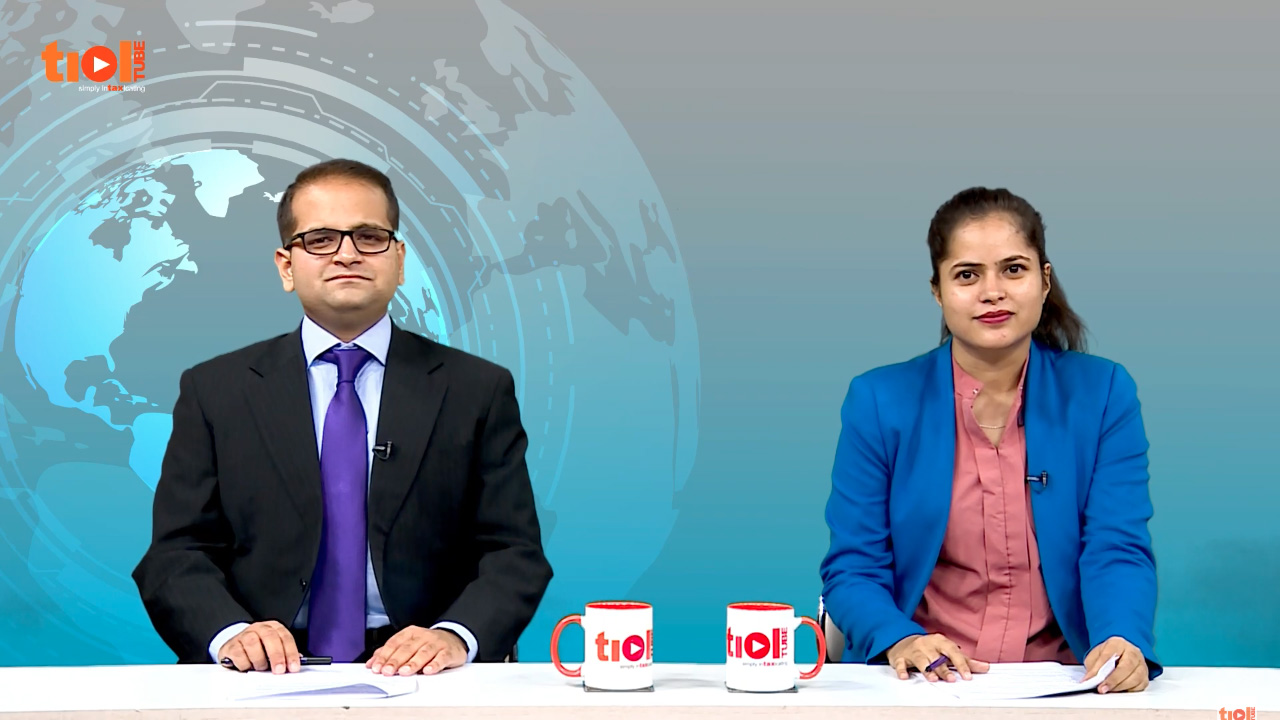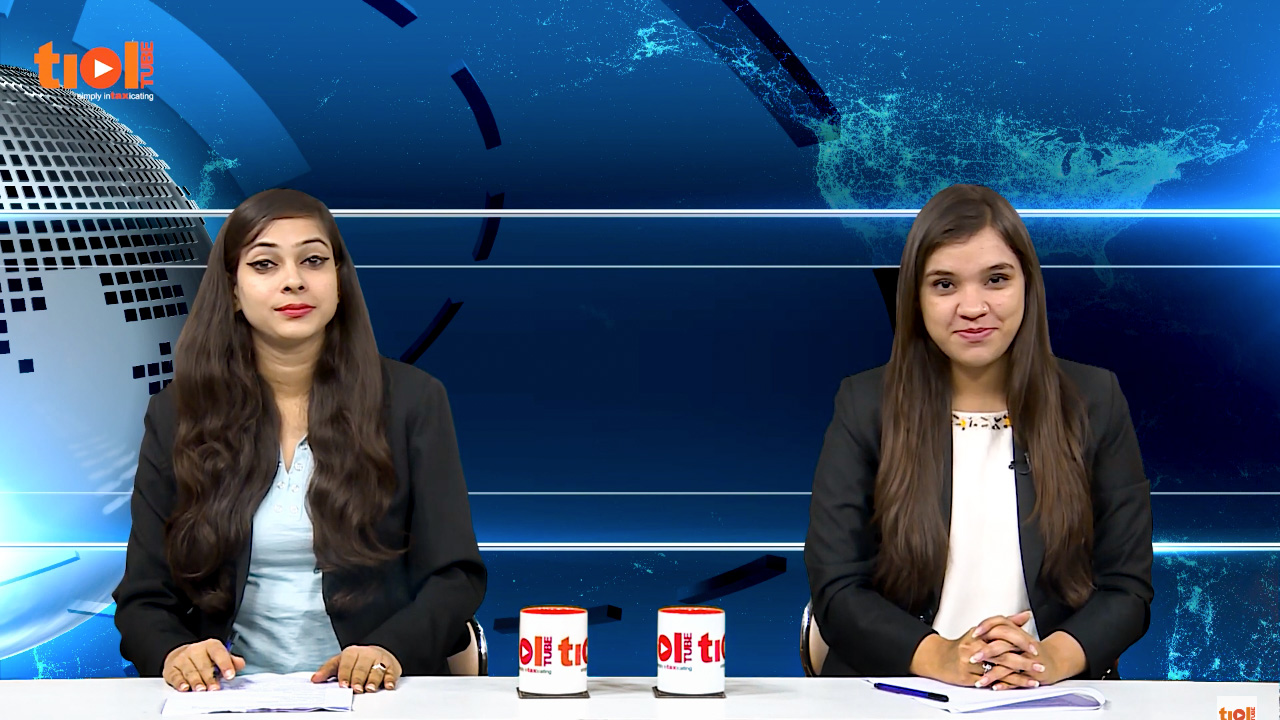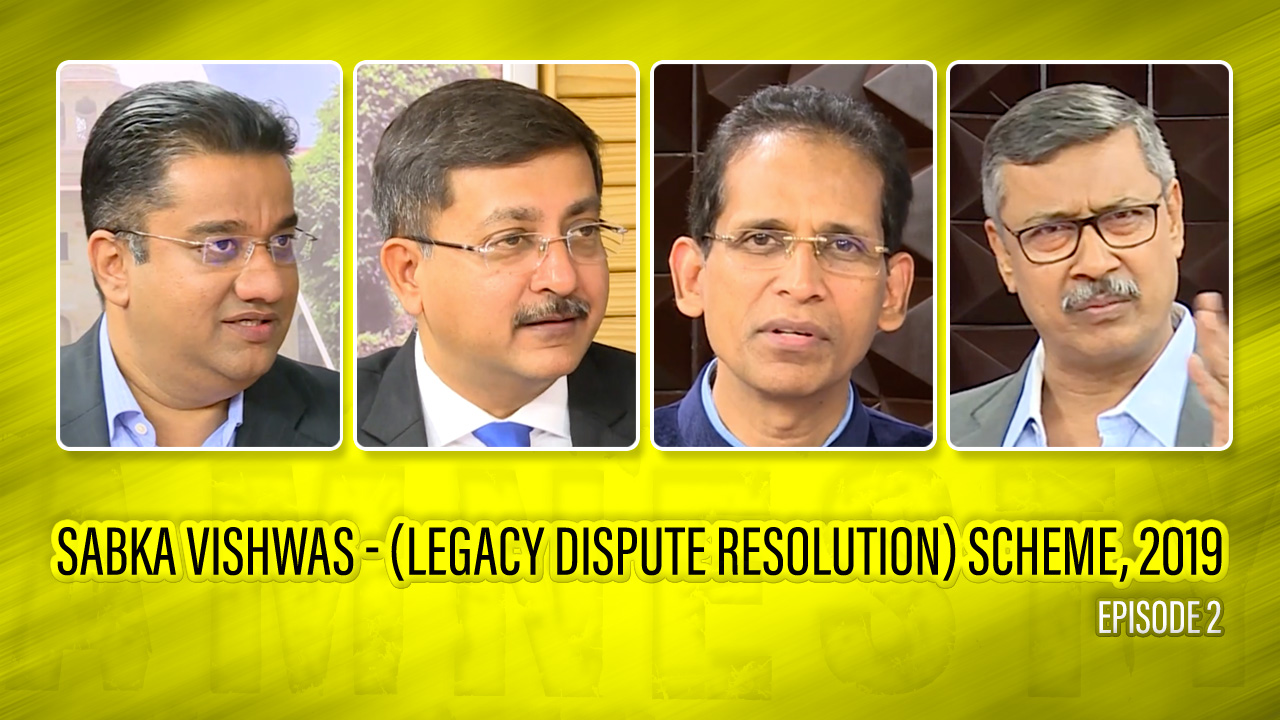SERVICE TAX
2019-TIOL-3395-CESTAT-DEL
A K Sharma Vs CCE & ST
ST - 'Commercial and Industrial Construction Service' and 'Manpower Recruitment of supply services' - Service tax amount has been collected by the appellant but not deposited to Department which is also accepted by the proprietor of the appellant - The appellant has paid substantial amount of service tax during the investigation and agreed to pay the balance amount - Having realised the mistake of not registering themselves for the services provided, the appellant obtained the service tax registration from the Department on 07/01/2010 and started paying the service tax partially as indicated in the Show Cause Notice and in the impugned order - Even after obtaining the service tax registration, the appellant has not duly discharged the applicable service tax on the services provided by them and also failed to file ST-3 returns in time - appellant has availed the substantial cenvat credit without duty paying documents which is not admissible under the provisions of the CCR - In fact, the appellant has himself accepted that they have committed mistake while not paying the service tax and by not following the procedure prescribed under the Act and Rules - The non-payment of service tax has come to light after the investigation conducted by the Department - the appellant has deliberately suppressed the relevant facts from the Department with sole intention to evade the payment of service tax and, therefore, the impugned order has correctly invoked provisions of 73 (1) of the FA, 1994 – no infirmity in the impugned order and accordingly the same is upheld – appeal dismissed: CESTAT [para 9, 10]
- Appeal dismissed: DELHI CESTAT
2019-TIOL-3394-CESTAT-CHD
Ace Build (P) Ltd Vs CCE & ST
ST - Construction Service - Prior to 01.06.2007, if service is provided alongwith material, no service tax is payable by the assessee - Further, for the period, post 01.06.2007, the demand of service tax can be made only under "Works Contract Services" - since no such demand raised, demand cannot sustain - services provided by the appellant of construction of complexes developed by Nagar Panchayat, Building of private college and boundary wall of the different parties, the appellant is not liable to pay service tax under ‘construction service' but merit classification as "Work Contract Service”: CESTAT [para 8]
ST - Appellant is not liable to pay service tax on the value of free material supplied by the service recipient as this issue is answered in favour of the appellant by the apex court decision in Bhayana Builders - 2018-TIOL-66-SC-ST : CESTAT [para 8]
ST - As the appellant has already reversed the cenvat credit availed on Telecom Services alongwith interest before issuance of the show cause notice, in that circumstances, the appellant is entitled for the benefit of Notification No. 01/2006-ST dated 01.03.2006: CESTAT [para 8]
- Appeal allowed: CHANDIGARH CESTAT
2019-TIOL-3393-CESTAT-MAD
Arun Excello Foundation Vs Commissioner of GST & CE
ST - In September 2016, appellant realized the excess payment made during April 2015 to June 2016 and adjusted it in September 2016 while filing returns - The excess amount paid by appellant during April 2016 to June 2016 has been allowed by department to be adjusted in September 2016, holding the view that it is adjusted in the immediate succeeding quarter - However, the excess payments made by appellant from April 2015 till March 2016 was not allowed to be adjusted for which the present demand has been made - Show Cause Notice was issued proposing to demand an amount of Rs.9,19,016/- for the period January 2016 to June 2017 alleging that the adjustment of the excess service tax made during September 2016 against the provisions of law is not in order - demand confirmed along with interest and penalty - since appeal rejected by Commissioner(A), assessee is in appeal before CESTAT.
Held: Upon a reading of rule 6(4A) of the STR, 1994, it can be seen that the word 'immediate' is absent in the Rule - The Rule says that the assessee can adjust the excess amount paid by him against the service tax liability for the succeeding month or quarter, as the case may be - The department is of the view that since the word 'quarter' is used after the word 'month', the only meaning that can be inferred from the Rule is that adjustment of excess amount paid can be made only in the "immediate" succeeding month or quarter - Needless to say that when the language in a statute is plain and unambiguous and admits of only one meaning, effect must be given to it, irrespective of the consequences - On understanding the plain and natural sense of the Rule, an assessee is allowed to adjust the excess amount paid by him to the service tax liability for succeeding month or quarter - In a hypothetical situation, if an assessee does not have any service tax liability for the immediate succeeding month or quarter, the question arises how can he utilize this provision for adjustment of excess service tax paid - So also when the excess paid is higher than the service tax liability in the immediate succeeding month or quarter, the Rule does not say that only part of the excess can be adjusted towards the immediate succeeding month or quarter and that assessee has to file refund for the balance excess amount - It can be reasonably understood that the Rule intends an assessee to adjust excess payment to his liability that is accrued later and this is to avoid hassles of a refund claim - When there is already excess amount in the hands of the Revenue, while making such adjustment, there is no revenue loss and, in fact, the Revenue is enriched by the interest on the excess amount till the adjustment - The word 'immediate' being absent in the Rule, the only interpretation possible is that the assessee can adjust the excess payment to any succeeding month or quarter when he has service tax liability - It has also to be borne in mind that such adjustment has to be made within reasonable time - provision for adjustment is to avoid the hassles of refund - adjustment made by the assessee in the month of September 2016 can, therefore, be said to be adjustment in accordance with Rule 6(4A) of the Service Tax Rules, 1994 - impugned order cannot sustain, hence appeal allowed with consequential relief: CESTAT [para 6, 8, 10, 11, 13]
- Appeal allowed: CHENNAI CESTAT
CENTRAL EXCISE
2019-TIOL-2653-HC-AHM-CX
Inductotherm India Pvt Ltd Vs UoI
CX/ST - Petitioner have placed on record a purshis of withdrawal dated 20.11.2019 wherein it has been stated that the petitioners have filed a declaration under the SVLDRS, 2019 and that the Committee constituted under the Scheme has accepted the declaration on condition that the Writ Petition is withdrawn and the order of the withdrawal made by the Court is produced before the Committee.
Held: Permission as prayed for is granted - petition is disposed of as withdrawn: High Court [para 2, 3]
- Petition disposed of
: GUJARAT HIGH COURT
2019-TIOL-3397-CESTAT-HYD
Apple Industries Ltd Vs CCT-GST
CX - Issue involved is eligibility of Cenvat credit on MS Angles, MS Channels, etc., used for fabricating and installing the capital goods - In the case of M/s Sai Samhita Storages Pvt Ltd - 2010-TIOL-1751-CESTAT-BANG Tribunal has held that Cenvat credit is available on such goods used in fabricating capital goods and the decision was upheld by the jurisdictional High Court of Andhra Pradesh - 2011-TIOL-863-HC-AP-CX - similar decision was taken in the case of M/s Gagan Resources Pvt Ltd by the Principal Bench of CESTAT and the decision was upheld by both the High Court of Chattisgarh and the Apex Court - impugned order is set aside and the appeal is allowed with consequential relief: CESTAT [7, 8]
- Appeal allowed: HYDERABAD CESTAT
2019-TIOL-3396-CESTAT-DEL
Aarti Sponge And Power Ltd Vs CCE & C
CX - Allegation of clandestine manufacture and removal without payment of duty - Unless there is clinching evidence of the nature of purchase of raw materials, use of electricity, sale of final products, clandestine removals, the mode and flow back of funds, demands cannot be confirmed solely on the basis of presumptions and assumptions - Clandestine removal is a serious charge against the manufacturer, which is required to be discharged by the Revenue by production of sufficient and tangible evidence - It is found that with regard to alleged clandestine removals, the department has not investigated the following aspects so as to corroborate the allegations viz. (i) To find out the excess production details, (ii) To find out whether the excess raw materials have been purchased, (iii) To find out the dispatch particulars from the regular transporters, (iv) To find out the realization of sale proceeds, (v) To find out finished product receipt details from regular dealers/buyers. (vi) To find out the excess power consumptions - Apparently, there is no investigation as conducted by the Department qua any of said aspects, the impugned demand of Rs. 13,74,436/- is wrongly confirmed by Commissioner (Appeals): CESTAT [para 8, 9]
CX - Demand on shortage of raw materials - there is no evidence on record except for the weighment of raw material - Admittedly the weighment is on average/estimation basis - there is no actual weighment of the goods done by the department - Department has failed to bring on the record the basis of deficiency arrived at by them as far as the alleged shortage of raw material i.e. silicon manganese, aluminium, ferro-silicon and CPC is concerned - demand of Rs. 2,17,790/- cannot, therefore, be sustained: CESTAT [para 10, 11]
CX - Mere deposit of some amount during investigation does not prove that goods have been admitted to have been cleared clandestinely - The possibility of persuasion of department cannot be ruled out - department has failed to prove convincingly, cogently and in corroboration of the admissible evidence the allegations of clandestine removal of MS Billets by the appellant and even the shortage of raw material available with the appellant - Demand and penalties set aside and appeals allowed: CESTAT [para 12, 13]
- Appeals allowed: DELHI CESTAT
CUSTOMS
2019-TIOL-504-SC-CUS
Hindustan Petroleum Corporation Ltd Vs CC
Cus - The issues at hand are whether the appellant could question the classification of the case in a refund application, without challenging the assessment order - in other words, can the refund application go behind an assessment, which has attained finality; and whether the revenue could pursue the R.C.P. after participating in the proceedings consequent to the remand order, dated 24.4.2003, passed by the CESTAT (c) Whether the Tribunal could apply the Doctrine of Merger for dismissing the Revenue's appeal - Later, the High Court held that the Apex Court in Karnataka Power Corporation Ltd had not overruled the judgment in Flock (India) Pvt Ltd - This judgment is not an authority for the proposition that when an appealable order is not challenged at all, even then the same can be questioned in a refund application - Once an assessee opts to not file an appeal, the assessee cannot challenge the same in a collateral proceeding - Hence the order of the CESTAT merits being set aside - Its conclusion that the order of the Commr.(A) merged with that of the Tribunal, is incorrect as the latter order stands set aside - It cannot be said that there was a fusion of the O-i-O with that of the O-i-A and the Doctrine of Merger is applicable - In fact the same was a remand order and no finality can be said to have been reached for applying the Doctrine of Merger - The High Court held it to be trite law that there is no estoppel against law - Hence the High Court allowed the Revenue's appeal.
Held - Delay condoned - There is no reason to entertain the present Special Leave to Petition and so the same merits being dismissed: SC
- Assessee's SLP dismissed :SUPREME COURT OF INDIA
2019-TIOL-3399-CESTAT-DEL
Vikas Ecotech Ltd Vs CC
Cus - The appeal has been filed against O-I-O, vide which the Adjudicating Authority has allowed the extension of time period for issuance of SCN in the matter of seizure up to 17.1.2019 in respect of assessee on the ground that investigation conducted so far showed the indicated web of existence of complex scheme of exporting cheap export product at inflated price and claiming ineligible export benefits, which are to be subsequently utilised for duty free import by the assessee - In this case, a seizure of imported goods has been affected vide seizure Memo dated 13/1/2018 at Nhava Sheva - In this regard, attention was drawn towards the public notice no.2/2005 dated 5.8.2005 issued by this Tribunal - Following the public notice, in this case the appropriate jurisdiction for filing appeal will be Zonal Bench, Mumbai, where the cause of action has arisen as the impugned order is passed by the Commissioner, Nhava Sheva-lll Port in the state of Maharashtra - The assesseee's contention that the importer is Delhi based and the searches have been conducted in their offices at Delhi by DRI is of no consequence, as it is only follow up searches after the goods were seized at Nhava Sheva - No seizure has been affected within New Delhi, giving cause to appeal before Delhi Bench of Tribunal - The SCN has been issued for extension of time for issuing of SCNs in respect of goods seized at Nhava Sheva Mumbai, and therefore, it will be the jurisdiction of Mumbai Bench to deal with the appeal filed against the Order passed by Commissioner - As far as the issue of SCN for extension of time by DRI (HQ) Delhi is considered, it is seen that the DRI Officer have been conferred with the power of Customs Officer under Section 4 of the Customs Act and hence they are competent to issue SCN, on that ground of having conferred all India jurisdiction - As far as the order of Calcutta High Court in case of Navneet Kumar is concerned, the same stand modified by the order of Division Bench in the another matter, wherein the operation of the order of Single Judge has been modified - Therefore, the SCN has been issued correctly by DRI, and is not without jurisdiction: CESTAT
- Appeal disposed of: DELHI CESTAT
2019-TIOL-3398-CESTAT-MUM
Apple Industries Ltd Vs CCT-GST
Cus - The assessee-company, a 100% EoU engaged in manufacturing Arcticooler Assely and parts thereof falling under Chapter 84 of CETA, imported capital goods namely CNC Lathe Machine, during the relevant period under the EoU scheme - The assessee removed capital goods to DTA and EPCG license holders on payment of concessional rate of duty @ 5% under the EPCG scheme - The Revenue alleged that the proper procedure u/s 62 and 68 of the Customs Act was not followed and goods were removed in contravention of Section 72(1)(a) and Section 72(1)(d) of the Act and without permission of the Development Commissioner, SEEPZ, Mumbai and without executing a bond - Hence it was held that benefit under Notfn No 52/2003-Cus was unavailable and duty was payable @ 25%, 16% CVD and 4% SAD - It was observed that the assessee calculated depreciation @ 16%, 12% and 10% over the years, leading to short levy of duty - SCNs were issued proposing duty demand and was confirmed on adjudication - Such demands were sustained by the Commr.(A) - Hence the present appeals.
Held - The assessee cleared goods to DTA or EPCG holders during Aug-Sept 2003, in which period, the Notfn No 53/97 was not in force and Notfn No 52/2003 was operational - Hence the same merits being considered - It is not the Revenue's case that the assessee did not fulfil the export obligation as per the EXIM policy - Hence the assessee is entitled to clear the used capital goods as per the policy as well as the Customs Notfn - Notfn No 52/2003 does not incorporate any requirement of obtaining permission - Even if such a provision exists, it is not the intent to deny a substantive right on grounds of procedural infraction such as not obtaining a permission or not filing a BoE - Hence the assessee's submission, of its not obtaining permission being no grounds to refuse applicability of the notification permitting concessional rate of duty, merits being sustained - Moreover, the clearances should be in terms of Notfn No 52/2003 and consequently, depreciation is also required to be as per the same notification - If a Customs notification gives a rate of depreciation, it is not open to the assessee to choose concessional rate of duty in terms of such notfn and depreciation rates in terms of the EXIM policy, based on the premise that providence of policy overrides provisions of the Notfn - The assessee's contention also is unacceptable in the sense that it treats unused machinery as obsolete - This is incorrect appreciation of law as goods do not become obselete merely because they were never put to use - Therefore the assessee is to apply depreciation as per Notfn No 52/2003, for which purpose the matter warrants remand to compute the applicable duty after allowing applicable depreciation: CESTAT
-
Assessee's appeal partly allowed: MUMBAI CESTAT








